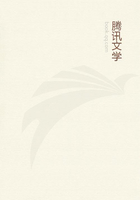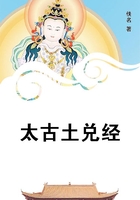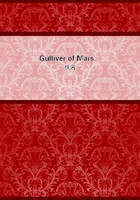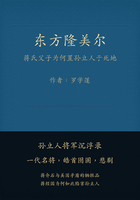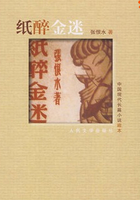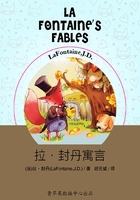A happier lot was in store for him.At the age of fifty, just when his health had begun to fail and his energies to show abatement, Ryecroft had the rare good fortune to find himself suddenly released from toil, and to enter upon a period of such tranquillity of mind and condition as he had never dared to hope.On the death of an acquaintance, more his friend than he imagined, the wayworn man of letters learnt with astonishment that there was bequeathed to him a life annuity of three hundred pounds.Having only himself to support (he had been a widower for several years, and his daughter, an only child, was married), Ryecroft saw in this income something more than a competency.In a few weeks he quitted the London suburb where of late he had been living, and, turning to the part of England which he loved best, he presently established himself in a cottage near Exeter, where, with a rustic housekeeper to look after him, he was soon thoroughly at home.Now and then some friend went down into Devon to see him; those who had that pleasure will not forget the plain little house amid its half-wild garden, the cosy book-room with its fine view across the valley of the Exe to Haldon, the host's cordial, gleeful hospitality, rambles with him in lanes and meadows, long talks amid the stillness of the rural night.We hoped it would all last for many a year; it seemed, indeed, as though Ryecroft had only need of rest and calm to become a hale man.
But already, though he did not know it, he was suffering from a disease of the heart, which cut short his life after little more than a lustrum of quiet contentment.It had always been his wish to die suddenly; he dreaded the thought of illness, chiefly because of the trouble it gave to others.On a summer evening, after a long walk in very hot weather, he lay down upon the sofa in his study, and there--as his calm face declared--passed from slumber into the great silence.
When he left London, Ryecroft bade farewell to authorship.He told me that he hoped never to write another line for publication.But, among the papers which I looked through after his death, I came upon three manuscript books which at first glance seemed to be a diary; a date on the opening page of one of them showed that it had been begun not very long after the writer's settling in Devon.When Ihad read a little in these pages, I saw that they were no mere record of day-to-day life; evidently finding himself unable to forego altogether the use of the pen, the veteran had set down, as humour bade him, a thought, a reminiscence, a bit of reverie, a description of his state of mind, and so on, dating such passage merely with the month in which it was written.Sitting in the room where I had often been his companion, I turned page after page, and at moments it was as though my friend's voice sounded to me once more.I saw his worn visage, grave or smiling; recalled his familiar pose or gesture.But in this written gossip he revealed himself more intimately than in our conversation of the days gone by.Ryecroft had never erred by lack of reticence; as was natural in a sensitive man who had suffered much, he inclined to gentle acquiescence, shrank from argument, from self-assertion.Here he spoke to me without restraint, and, when I had read it all through, I knew the man better than before.
Assuredly, this writing was not intended for the public, and yet, in many a passage, I seemed to perceive the literary purpose--something more than the turn of phrase, and so on, which results from long habit of composition.Certain of his reminiscences, in particular, Ryecroft could hardly have troubled to write down had he not, however vaguely, entertained the thought of putting them to some use.I suspect that, in his happy leisure, there grew upon him a desire to write one more book, a book which should be written merely for his own satisfaction.Plainly, it would have been the best he had it in him to do.But he seems never to have attempted the arrangement of these fragmentary pieces, and probably because he could not decide upon the form they should take.I imagine him shrinking from the thought of a first-person volume; he would feel it too pretentious; he would bid himself wait for the day of riper wisdom.And so the pen fell from his hand.
Conjecturing thus, I wondered whether the irregular diary might not have wider interest than at first appeared.To me, its personal appeal was very strong; might it not be possible to cull from it the substance of a small volume which, at least for its sincerity's sake, would not be without value for those who read, not with the eye alone, but with the mind? I turned the pages again.Here was a man who, having his desire, and that a very modest one, not only felt satisfied, but enjoyed great happiness.He talked of many different things, saying exactly what he thought; he spoke of himself, and told the truth as far as mortal can tell it.It seemed to me that the thing had human interest.I decided to print.
The question of arrangement had to be considered; I did not like to offer a mere incondite miscellany.To supply each of the disconnected passages with a title, or even to group them under subject headings, would have interfered with the spontaneity which, above all, I wished to preserve.In reading through the matter Ihad selected, it struck me how often the aspects of nature were referred to, and how suitable many of the reflections were to the month with which they were dated.Ryecroft, I knew, had ever been much influenced by the mood of the sky, and by the procession of the year.So I hit upon the thought of dividing the little book into four chapters, named after the seasons.Like all classifications, it is imperfect, but 'twill serve.
G.G.

